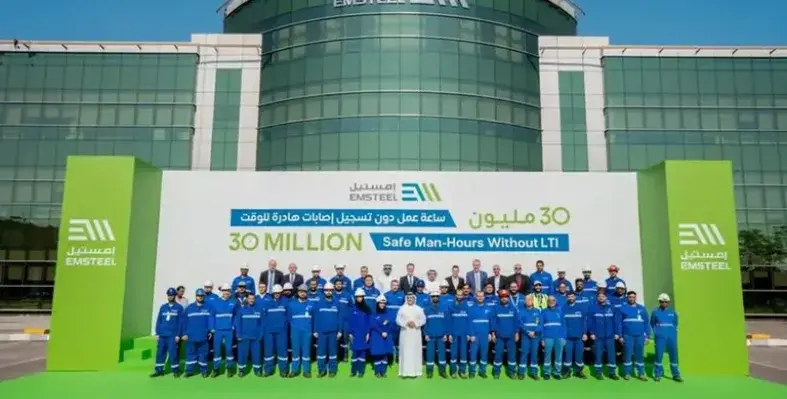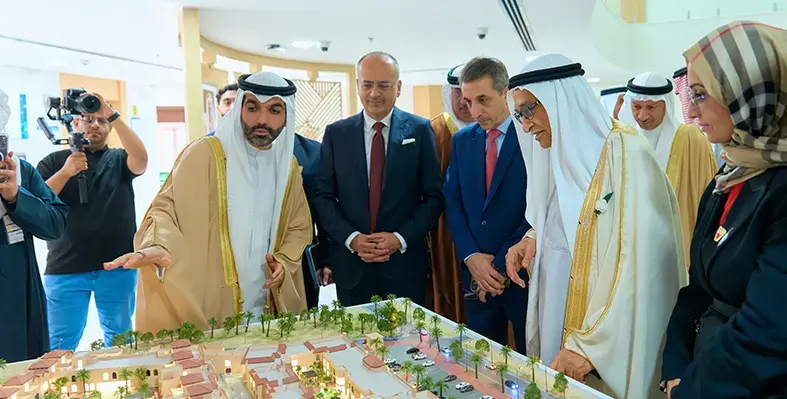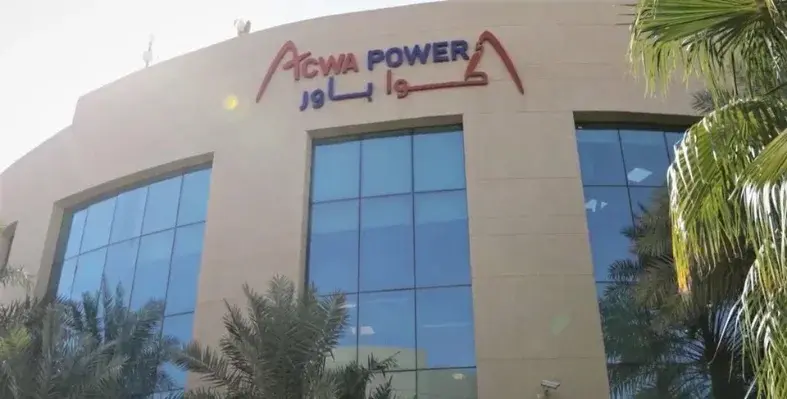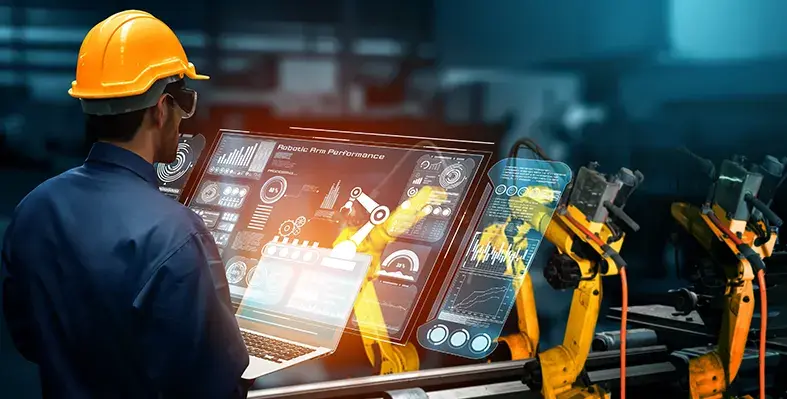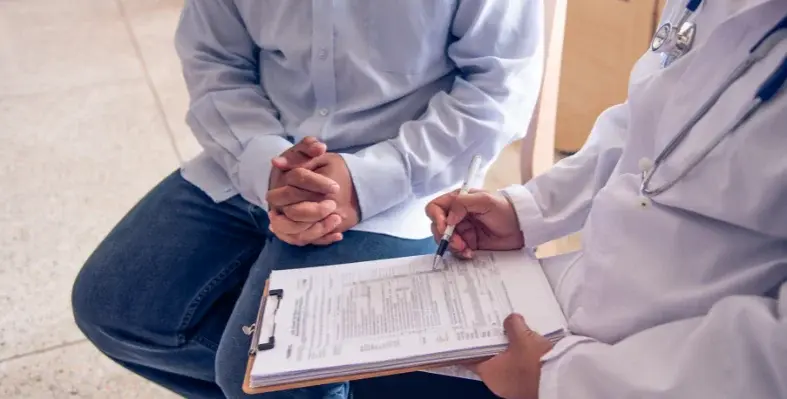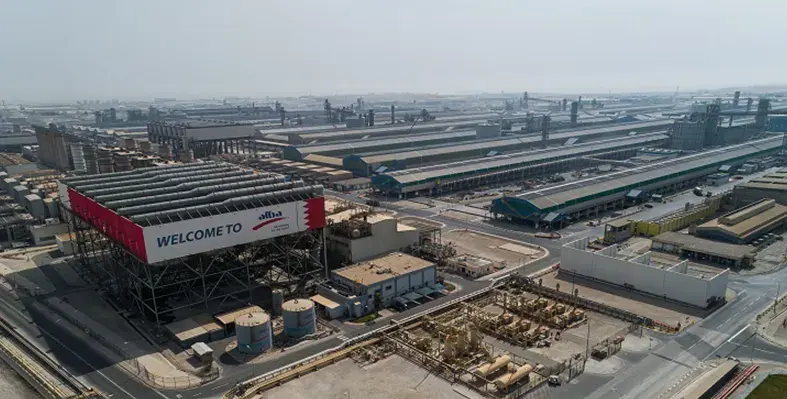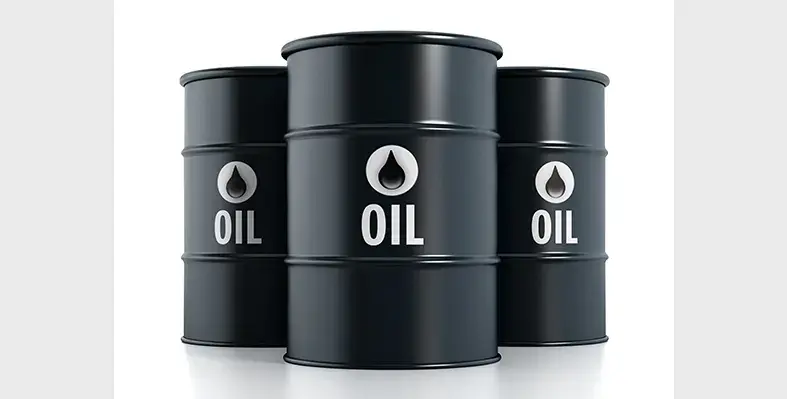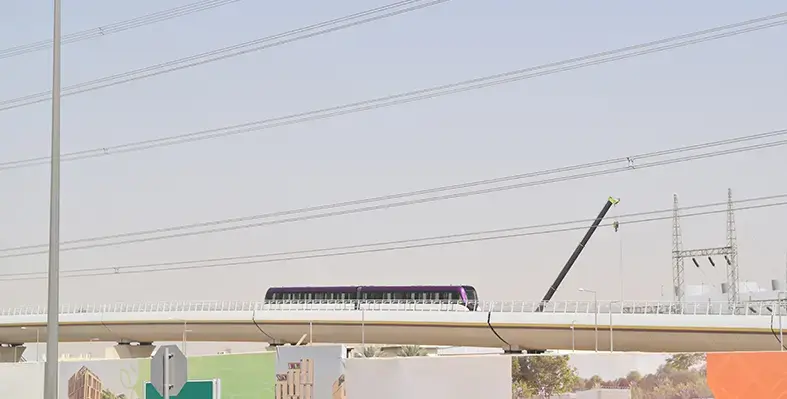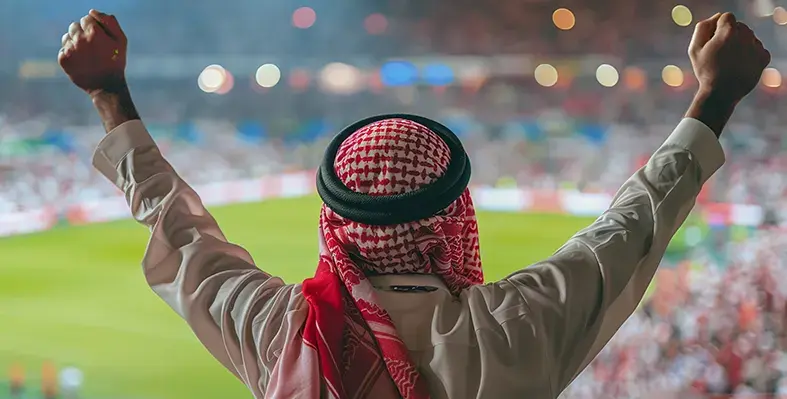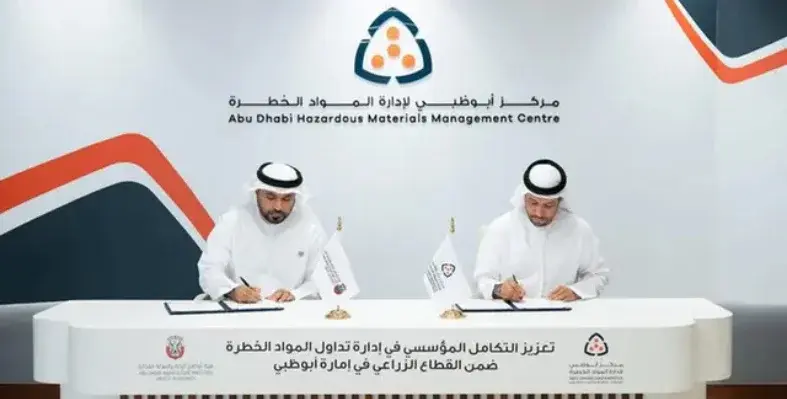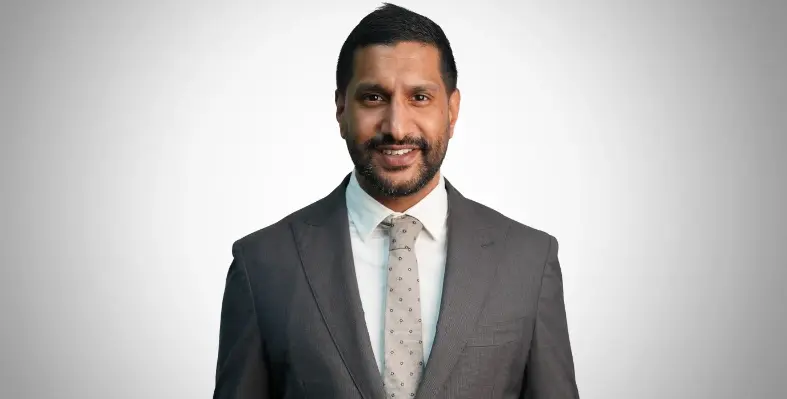Middle East
Middle East
- Region: Middle East
- Date: 12th December 2025
- Year: 2025
After reaching 30 million hours without a Lost-Time Injury (LTI), an event at the EMSTEEL Headquarters in Abu Dhabi saw the announcement of a new digital assistant, the HSE AI Advisor
The last recorded LTI across EMSTEEL sites was in September 2024; leadership team members and key stakeholders celebrated the 30 million hour milestone.
Group CEO Eng. Saeed Ghumran Al Remeithi said, "Achieving more than 30 million LTI-free man-hours reflects the commitment, vigilance and shared responsibility demonstrated by every member of our workforce. Safety is the foundation of our operational excellence and remains central to our long-term success."
At the ceremony, EMSTEEL unveiled HSE AI Advisor, a new digital assistant that provides real-time HSE guidance across all plants and employee departments. Al Remeithi continued, "The launch of the HSE AI Advisor strengthens this commitment by giving our teams a powerful new tool that enhances access to critical safety information and supports the consistency of our standards across the organisation.
"As we continue to invest in our people, systems and technologies, we remain focused on building a safer, more resilient organisation and setting higher benchmarks for industrial safety across the region."
The digital tool includes the latest regulatory information and HSE procedures in multiple languages. Employees at the event, which took place at EMSTEEL's headquarters, took part in a live demonstration of the new platform.
In October, EMST£EEL won the Safety Culture and Leadership Award at the worldsteel awards.
- Region: Middle East
- Date: 10th December 2025
- Year: 2025
M42, a global health leader powered by artificial intelligence (AI), technology and genomics, has inaugurated Amana Healthcare Bahrain, strengthening national healthcare capabilities and providing access to best-in-class specialist services
The state-of-the-art facility in Al Jasra is M42’s first in the Kingdom and marks a significant expansion of the company’s regional expansion strategy, underscoring its long-term commitment to investing in the GCC to advance healthcare and improve patient outcomes.
Developed in partnership with Bahrain Mumtalakat Holding Company (Mumtalakat), the sovereign wealth fund of the Kingdom of Bahrain, Amana Healthcare Bahrain is the first specialised long-term care and rehabilitation hospital of its kind in the country. The facility provides a dedicated capacity for post-acute recovery, allowing acute-care hospitals to focus on their primary medical and surgical missions. The hospital spans more than 15,000 square meters and houses over 100 beds dedicated to long-term care and rehabilitation. It is supported by a multidisciplinary team of 250 clinicians, nurses, therapists, and support staff. The facility offers extensive training and development opportunities to further empower national talent.
His Excellency Shaikh Abdulla bin Khalifa Al Khalifa, chief executive Officer of Mumtalakat, said, “The inauguration of Amana Healthcare Bahrain marks a key milestone in strengthening the Kingdom’s healthcare ecosystem. It underscores Mumtalakat’s commitment to investing in initiatives that create meaningful local impact while supporting the Kingdom’s economic diversification. We are proud to partner with M42 on this achievement and confident in the positive contribution this state-of-the-art facility will bring to the Kingdom.”
Dimitris Moulavasilis, group chief executive officer, M42, said, “The inauguration of Amana Healthcare Bahrain is a pivotal step in our regional growth journey and reinforces our commitment to expanding access to specialized, patient-centric care across the GCC. Our partnership with Mumtalakat reflects the strength of public-private collaboration in advancing national healthcare priorities and delivering long-term, sustainable impact for communities. The facility also contributes to building specialised care capacity across the region and to strengthening long-term care pathways that are essential to improving patients’ quality of life.”
- Region: Middle East
- Date: 9th December 2025
- Year: 2025
ACWA Power has confirmed a joint development agreement with Bapco Energies, which will see the co-development of a solar power plant in Saudi Arabia which transmits electricity to Bapco's load center in Bahrain
The plant will be developed in several stages, with a final generation capacity of around 2.8 GW expected upon completion.
ACWA Power's vice chairman and managing director, Raad Al Saady, was at the announcement of the co-development project at a Saudi–Bahraini Coordination Council meeting. "This joint agreement with Bapco Energies is a testament to the strong bilateral ties between Saudi Arabia and Bahrain and our shared commitment to a sustainable and secure energy future.
" ACWA Power is proud to help advance a project that strengthens regional energy security and accelerates the shift to renewable power."
The plant will be developed in the Eastern Province of Saudi Arabia, and will be equipped with large-scale battery storage tech. Such technology will allow the plant deliver all electrecity generated to Bapco's load centre to support the nation's energy needs and renewable transition.
Bapco Energies' group CEO, Mark Thomas, described the project as "another important milestone in our journey towards energy diversification and regional collaboration.
"By working alongside ACWA Power, Bapco Energies is taking a bold step to ensure long-term energy security for the Kingdom of Bahrain while unlocking the power of renewables."
- Region: Middle East
- Date: 8th December 2025
- Year: 2025
Saudi Arabia’s National Council for Occupational Safety and Health (NCOSH) and Sabentis, a technology company specialised in digital solutions for Occupational Safety and Health (OSH), are looking at a potential collaboration aimed at strengthening the prevention culture, promoting technological innovation, and enhancing occupational health and safety, in line with the Kingdom’s Vision 2030
The two entities have initiated a joint process of technical analysis and environmental validation to evaluate advanced digital solutions that would integrate management, oversight, and training in occupational safety into a unified national ecosystem, according to an article on Sabentis’ website. The project is currently in an exploratory and proof-of-concept testing phase, to determine the technical and regulatory feasibility of applying artificial intelligence, data analytics, and automation to Saudi Arabia’s preventive systems. During this stage, functional tests and technical pilots will assess the platform’s performance in real environments, ensuring compliance with the Personal Data Protection Law (PDPL) and the standards of the National Cybersecurity Authority (NCA).
This exploratory collaboration between NCOSH and Sabentis aligns with the objectives of Saudi Arabia’s Vision 2030, which promotes digitalisation and emphasises workplace safety, efficiency, and worker well-being as key drivers of sustainable growth.
“The collaboration between NCOSH and Sabentis represents an important step in the convergence of technology, prevention, and sustainable development,” comments Sabentis. “Although still in a phase of technical analysis and validation, this initiative lays the groundwork for a project that could transform workplace safety in Saudi Arabia and serve as an international benchmark for preventive innovation in the field of Occupational Safety and Health.”
- Region: Middle East
- Date: 5th December 2025
- Year: 2025
Saudi Arabia has introduced the Regulation on Occupational Fitness and Non-Communicable Diseases Examinations, designed to enhance workplace health and safety throughout the Kingdom
The regulation provides a comprehensive framework to enable early detection of non-communicable diseases, enhance workers’ health in workplaces, assess mental and physical fitness, reduce occupational diseases and injuries, and ensure the suiable selection of candidates for sensitive professions. It also seeks to strengthen workplace prevention measures and improve worker wellbeing, thereby improving productivity.
The regulation requires employers to implement mandatory pre-employment medical examinations and periodic check-ups for employees, with special provisions for workers in hazardous or high-risk professions.
It also requires employers to classify roles by risk profile, ensuring that assessments align with actual workplace exposures. This includes tests such as respiratory fit testing, audiometry and spirometry.
In addition, the regulation establishes comprehensive health databases to track the health of all employees, supporting decision-making and enhancing preventive oversight.
The regulation applies to public entities, private sector establishments and non-profit organisations – covering employees of all contract types, including remote workers, trainees and persons with disabilities.
“The new Occupational Fitness & Non-communicable Diseases Examinations Regulation marks a major step forward in Saudi Arabia’s occupational health and safety landscape,” comments law firm Dentons.
“By standardising medical examinations, embedding risk-based approaches and strengthening data protections, the Regulation enhances both worker well-being and organisational resilience.
“For employers, compliance will require investment in systems, training and governance – but the payoff is clear: a healthier, safer and more productive workforce that is aligned with the Kingdom’s long-term economic transformation objectives.”
- Region: Middle East
- Date: 4th December 2025
- Year: 2025
At the inauguration of the new Jordan Oil Terminals Company's laboratory, a facility that will provide testing and quality assurance services for petrochemicals, Jordan's Energy Minister Saleh Kharabsheh praised the facility's world-leading safety and quality standards
Kharabsheh also highlighted the new facility's alignment with Jordan's Economic Modernisation Vision, which hopes to enhance the efficiency and safety of key sectors, of which energy reigns large.
Jordan Oil Terminals Company's new facility was reported to employ accredited analytics and embody the highest global standards in the safety and quality of its operations, according to media reports.
Energy Minister Kharabsheh was joined by public and private sector officials and business representatives, as well as ministers from across industrial sectors, at the inauguration. The union of public and private sector was addressed by the Minister, who iterated the importance of partnerships in sustainable development and industry competitiveness.
Ashraf Rawashded, Jordan Oil Terminals Company's general director, suggested the opening of the laboratory will be reflected on as a key milestone for his company, highlighting the key role the oil and gas sector will play in its ongoing operational footprint expansion.
- Region: Middle East
- Date: 3rd December 2025
- Year: 2025
Aluminium Bahrain (Alba) has won the ‘Excellence in Safety’ Award from the Lifting Equipment Engineers Association (LEEA), the latest in a string of health and safety awards
The award recognises Alba’s outstanding achievements in workplace safety, including reducing total injuries by nearly 60% over the past five years, fostering a bottom-up approach that ensures active employee engagement in safety initiatives, and maintaining the highest standards in safe lifting operations through continuous training and certification of its staff as lifting tackle inspectors.
Ali Al Baqali, Alba’s chief executive officer, said, “Winning this award from a globally respected body like LEEA is a reflection of Alba’s relentless pursuit of safety as a core value. This recognition inspires us to keep empowering our workforce and fostering a culture where safety leads every decision.”
With over 80 years since its establishment in London, UK, LEEA is a globally recognised authority in the lifting industry and related practices, collaborating with cross-sector members to advance safety standards and set benchmarks for excellence.
Alba’s strong commitment to safety is reflected in a number of safety achievements this year, including the milestone of 40 million safe working hours without a Lost Time Injury (LTI), reached on 06 October 2025, reinforcing its position as a global leader in industrial safety.
“Reaching 40 million safe working hours is more than a milestone, it’s a reflection of our strong safety culture, the commitment of our people, and the strong collaboration between our employees and contractor personnel,” said Al Baqali during a celebration attended by senior officials and employees at the company’s premises.
“This success is a direct result of our workers’ dedication, discipline, and resilience. Working safely under the demanding conditions of aluminium smelting requires focus and teamwork and our people have consistently delivered.”
The company’s commitment to cultivating a world-class safety culture for its workforce has been recognised this year with the award of the Royal Society for the Prevention of Accidents (RoSPA’s) President’s award for the third consecutive year, British Safety Council 2025 International Safety Award and several major awards from the USA’s National Safety Council (NSC).
Alba prioritises worker safety into every layer of its operations, believing that its people are its most valuable assets, and investing in their safety is an investment in the company’s future success. Its foundational ‘Safety First’ culture is strengthened by dedicated safety campaigns, comprehensive in-house training programmes, weekly Safety Talks and active shop-floor engagement by Alba’s executives, all of which play a crucial role in promoting a safer workplace for all.
- Region: Middle East
- Date: 2nd December 2025
- Year: 2025
Dubai has tightened up regulations relating to the trading, manufacture, supply, storage and transport of petroleum products, in line with global best practices
The resolution was issued by His Highness Sheikh Hamdan bin Mohammed bin Rashid Al Maktoum, Crown Prince of Dubai, Deputy Prime Minister and Minister of Defence, in his capacity as Chairman of The Executive Council of Dubai, in a bid to curb illegal trading, mitigate environmental impact, and safeguard lives, property, and public safety.
Provisions of the resolution apply to all entities engaged in these activities across Dubai, except for companies exempted by a UAE Cabinet decision.
The Dubai Supreme Council of Energy is now responsible for overseeing petroleum trading activities in the emirate. Its duties include setting rules on competition and market concentration, approving technical standards and procedures for trading, storage, transport, sale, and use of petroleum, and ensuring compliance with health, safety, and environmental requirements.
The Council also issues, renews, and amends permits, determines the number and locations of fuel stations, approves standards for transport vehicles, storage facilities, and household gas cylinders, and identifies areas within the emirate where the trading of petroleum products is prohibited, in coordination with the relevant authorities.
The resolution prohibits any person from engaging in petroleum trading activities in the emirate without authorisation from the licensing authority. Such activities may only be carried out after the source of the petroleum materials has been verified and documentation confirming acquisition from a Council-approved company has been submitted.
According to the resolution, violations of petroleum trading rules incur fines up to a maximum of one million dirhams.
The Supreme Council of Energy has the power to cancel permits, temporarily close facilities for up to six months, revoke commercial licences, and seize, destroy, or re-export petroleum materials and vehicles that do not comply with the rules.
- Region: Middle East
- Date: 1st December 2025
- Year: 2025
- Region: Middle East
- Date: 1st December 2025
- Year: 2025
- Region: Middle East
- Date: 1st December 2025
- Year: 2025
The memorandum of understanding, signed by H.E. Khalfan Abdullah Al Mansoori, Acting Director General of the Abu Dhabi Hazardous Materials Management Centre, and H.E. Dr. Tariq Ahmed Al Ameri, Acting Director General of the Abu Dhabi Agriculture and Food Safety Authority (ADAFSA), will hope to establish a framework for best practices in hazardous material handling and management
Both organisations will contribute to the comprehensive framework, which will include joint initiatives, streamlined regulation, and technical data and information exchange.
ADAFSA acting general director, H.E. Dr. Tariq Ahmed Al Ameri, said shortly after signing the MoU, "Through this partnership, we will work to develop integrated systems for hazardous materials management, streamline regulatory procedures, and provide a safe environment for farmers, livestock breeders and producers.
"This will contribute to improving operational efficiency, enhancing the quality of agricultural and food production, and strengthening its competitiveness in the markets."
Several strategic initatives are expected to follow the MoU; potential avenues include joint research, digital transformation projects, and environmental schemes. It follows the establishment of the Abu Dhabi Hazardous Materials Management Centre in 2023, and its more recent strategic pivot.
H.E. Khalfan Abdullah Al Mansoori, Acting Director General of the Abu Dhabi Hazardous Materials Management Centre, concluded, "The signing of this MoU represents a strategic step that strengthens Abu Dhabi’s efforts to build an integrated system for hazardous materials management... managing the circulation of these materials in accordance with international standards reduces operational risks and enables investment institutions to operate within a stable and reliable regulatory environment, supporting Abu Dhabi’s competitiveness and attracting more high-quality investments."
- Region: Middle East
- Date: 26th November 2025
- Year: 2025
Penta Global, a UAE-based EPC construction company, has released a new report titled Mind Matters in Construction: The State of Mental Health and Wellbeing in the UAE, highlighting the need for a more coordinated and standardised approach to worker wellbeing across the industry.
The construction sector contributes more than 9% of the UAE’s GDP and employs over 1.8mn workers, most of whom are expatriates. Despite its scale, Penta Global’s report finds that mental health remains an underaddressed area of worker welfare, even as awareness and initiatives continue to grow.
The report notes that untreated mental illness leads to at least 37.5mn lost productive days annually across the GCC, amounting to US$3.5bn in economic losses. It also references research showing that construction workers who work beyond eight-hour shifts are 2.7 times more likely to report symptoms of depression.
Sujay Nair, Executive Director at Penta Global, said: “This report takes an in-depth look at the mental health realities of the construction workforce. There is a clear growing recognition of employee mental wellness as a strategic priority in the UAE and globally. It highlights the progress made but also the need for change, shared accountability, and sustained attention to the wellbeing of the people building the UAE’s future. So, we are calling on the industry to come together and make the change together to foster a culture of care in construction.”
The study highlights uneven access to wellbeing programmes, with major contractors investing significantly in safety and mental health support, while smaller subcontractors often lack formal frameworks or dedicated budgets.
Government-led reforms, including the National Strategy for Wellbeing 2031, the 2024 Mental Health Law, and the Dubai Health Authority’s Mental Wealth Framework—are accelerating improvements. Abu Dhabi has reported a 30% rise in mental health treatment uptake since 2022.
Penta Global aims to shift the industry focus from awareness to action, urging the sector to increase wellbeing data and transparency, collaborate on unified standards, and prioritise prevention over reactive responses. By enhancing data, strengthening industry-wide collaboration, and addressing root causes of stress and fatigue, the UAE construction sector can set a global benchmark for sustainable and human-centric development.
